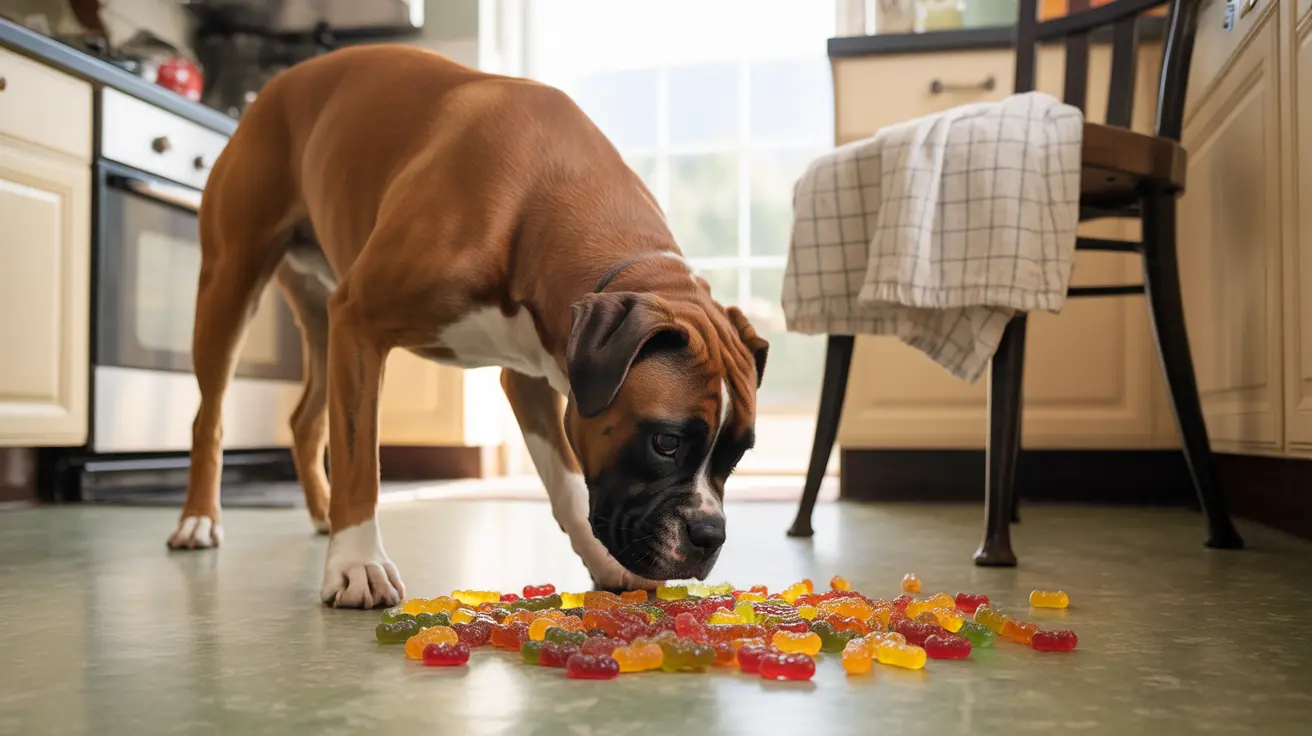As pet owners increasingly share their snacks with their four-legged friends, a common question arises: can dogs have fruit snacks? While it might seem harmless to share these chewy treats with your canine companion, the reality is that fruit snacks and gummies pose several health risks to dogs and should be avoided.
Understanding the dangers of these sugary treats is crucial for responsible pet ownership. Let's explore why these snacks aren't suitable for dogs and what alternatives you can offer instead.
The Dangers of Fruit Snacks for Dogs
Fruit snacks and gummies contain several ingredients that can be harmful to your dog's health. The primary concerns include:
- High sugar content leading to obesity and dental problems
- Artificial sweeteners, especially xylitol, which is toxic to dogs
- Synthetic colors and preservatives that can cause digestive issues
- Chewy texture that presents a choking hazard
- Grape-derived ingredients in some varieties that are toxic to dogs
Can Dogs Eat Gummies Safely?
The short answer is no. While a single regular gummy bear might not cause immediate harm, these treats offer no nutritional value and can lead to various health issues. Sugar-free varieties are particularly dangerous due to the possible presence of xylitol, which can cause rapid insulin release and potentially fatal liver failure in dogs.
Immediate Risks of Gummy Consumption
When dogs consume gummies or fruit snacks, they may experience:
- Vomiting and diarrhea
- Blood sugar spikes and crashes
- Lethargy or hyperactivity
- Digestive system disruption
- Potential choking hazards
What to Do If Your Dog Eats Gummy Treats
If your dog has consumed gummy treats, take these immediate steps:
- Check the ingredient list for xylitol or grape derivatives
- Contact your veterinarian if toxic ingredients are present
- Monitor your dog for signs of distress
- Keep track of how many treats were consumed
- Have water readily available
Healthy Alternatives for Dogs
Instead of fruit snacks or gummies, consider these dog-safe alternatives:
- Fresh, dog-safe fruits (in moderation)
- Commercial dog treats designed for dental health
- Small pieces of lean meat
- Carrot sticks
- Homemade frozen yogurt treats
Frequently Asked Questions
Why are fruit snacks and gummy bears not recommended for dogs?
Fruit snacks and gummy bears contain high amounts of sugar, artificial ingredients, and potentially toxic substances like xylitol. They also present choking hazards and can lead to serious health issues including obesity and diabetes.
What are the health risks if my dog eats fruit snacks or gummy bears?
The risks include immediate problems like choking and digestive upset, as well as long-term issues such as obesity, dental problems, and diabetes. If the treats contain xylitol, they can cause dangerous drops in blood sugar and liver failure.
How can I safely treat my dog if they accidentally eat gummy bears or fruit snacks?
Monitor your dog for signs of distress, check the ingredient list for toxic substances, and contact your veterinarian immediately if the treats contained xylitol or grape derivatives. Provide water and watch for symptoms of digestive upset.
What are healthier alternatives to fruit snacks and gummy bears for dogs?
Offer fresh, dog-safe fruits, commercial dog treats, small pieces of lean meat, or vegetables like carrots. These alternatives provide nutritional benefits without the risks associated with gummy treats.
How can I prevent my dog from getting into fruit snacks or gummy bears?
Store all sugary treats in secure, closed containers out of your dog's reach. Educate family members, especially children, about the dangers of sharing these treats with pets, and keep snacks in designated areas that dogs cannot access.
Remember, while sharing treats with your dog can be a wonderful bonding experience, it's essential to choose options specifically designed for canine consumption. When in doubt, consult with your veterinarian about safe treat choices for your furry friend.






